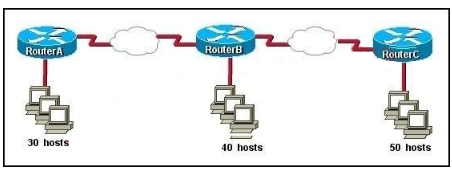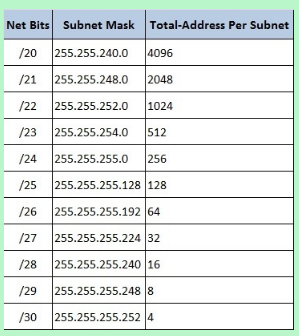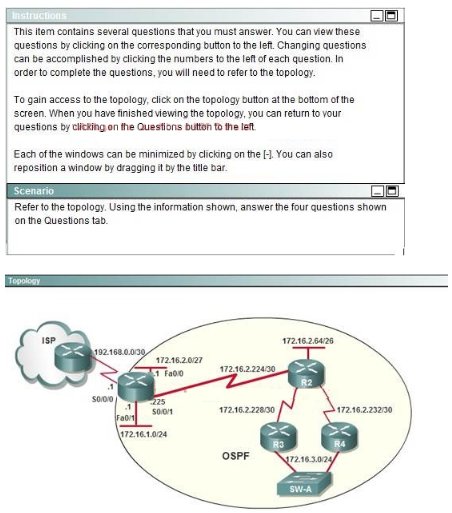READ Free Dumps For CISCO- 100-105
| Question ID 14487 | Refer to the exhibit.

The enterprise has decided to use the network address 172.16.0.0. The network
administrator needs to design a classful addressing scheme to accommodate the three
subnets, with 30, 40, and 50 hosts, as shown. What subnet mask would accommodate this
network?
|
| Option A | 255.255.255.192
|
| Option B | 255.255.255.224
|
| Option C | 255.255.255.240
|
| Option D | 255.255.255.248
|
| Option E | 255.255.255.252
|
| Option F | Answer : A
Explanation: Subnet mask A i.e. 255.255.255.192 with CIDR of /26 which means 64 hosts per subnet which are sufficient to accommodate even the largest subnet of 50 hosts.

|
| Correct Answer | A |
Explanation
| Question ID 14488 | To allow or prevent load balancing to network 172.16.3.0/24, which of the following
commands could be used in R2? (Choose two.)

|
| Option A | R2(config-if)#clock rate
|
| Option B | R2(config-if)#bandwidth
|
| Option C | R2(config-if)#ip ospf cost
|
| Option D | R2(config-if)#ip ospf priority
|
| Option E | R2(config-router)#distance ospf
|
| Correct Answer | B,C |
Explanation Explanation: http://www.cisco.com/en/US/tech/tk365/technologies_white_paper09186a0080094e9e.sht ml#t6 The cost (also called metric) of an interface in OSPF is an indication of the overhead required to send packets across a certain interface. The cost of an interface is inversely proportional to the bandwidth of that interface. A higher bandwidth indicates a lower cost. There is more overhead (higher cost) and time delays involved in crossing a 56k serial line than crossing a 10M Ethernet line. The formula used to calculate the cost is: Cost = 10000 0000/bandwidth in bps For example, it will cost 10 EXP8/10 EXP7 = 10 to cross a 10M Ethernet line and will cost 10 EXP8/1544000 =64 to cross a T1 line. By default, the cost of an interface is calculated based on the bandwidth; you can force the cost of an interface with the ip ospf cost
interface subconfiguration mode command.